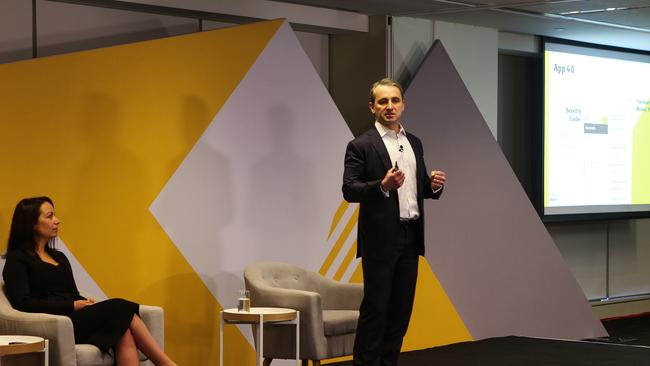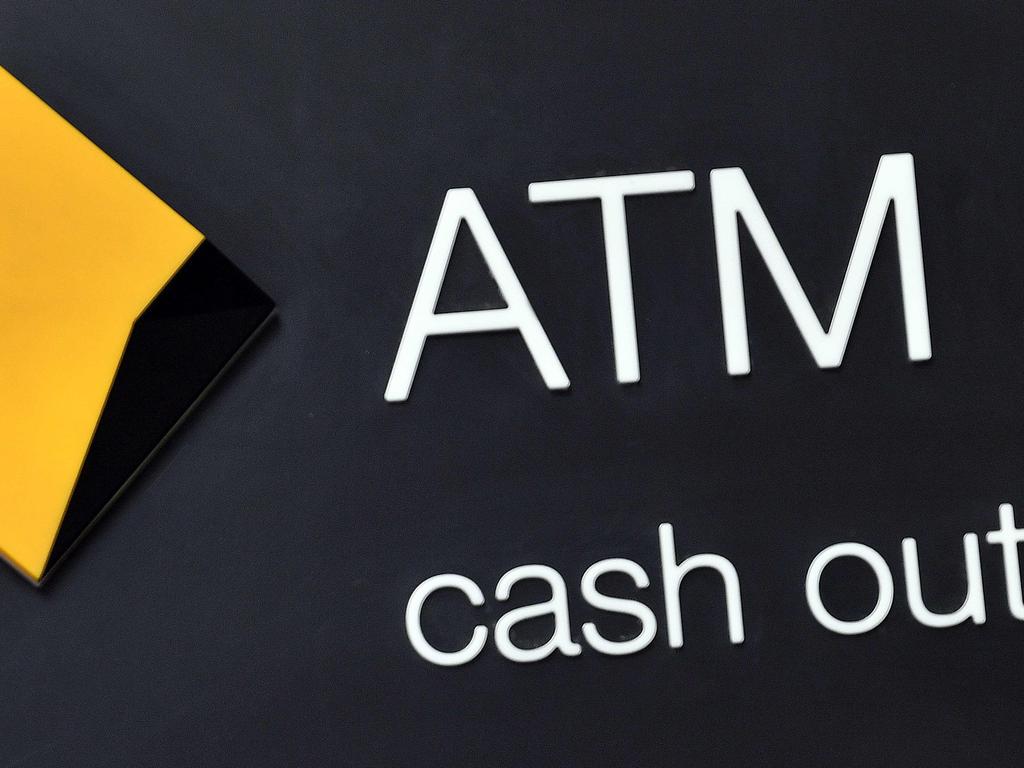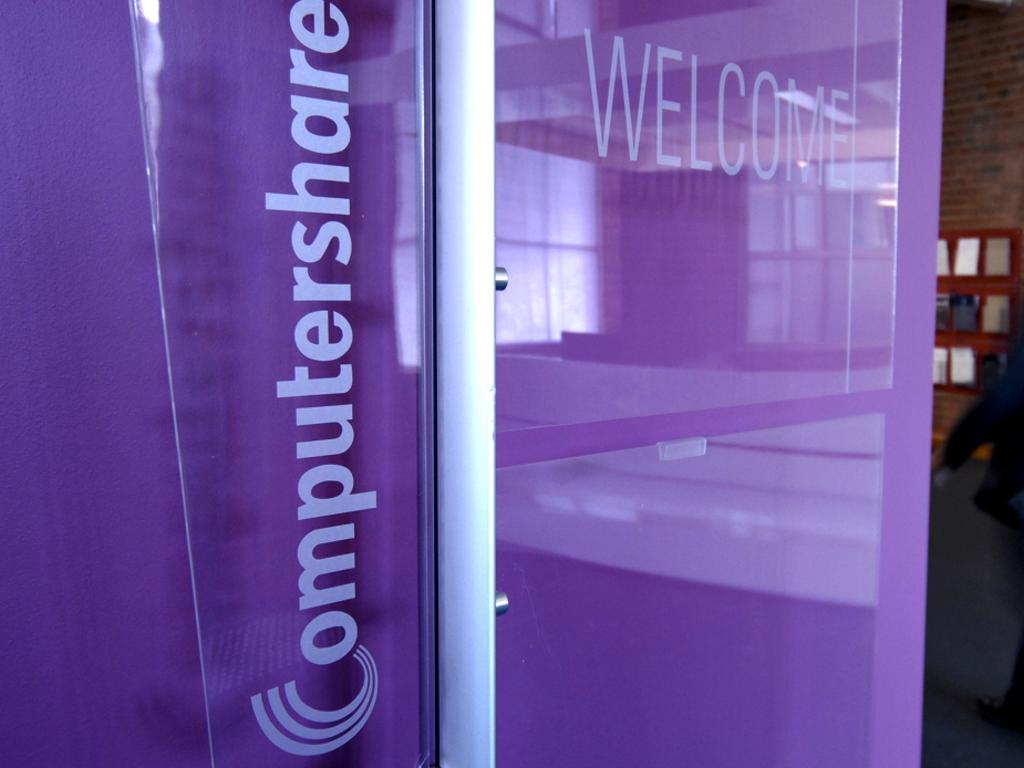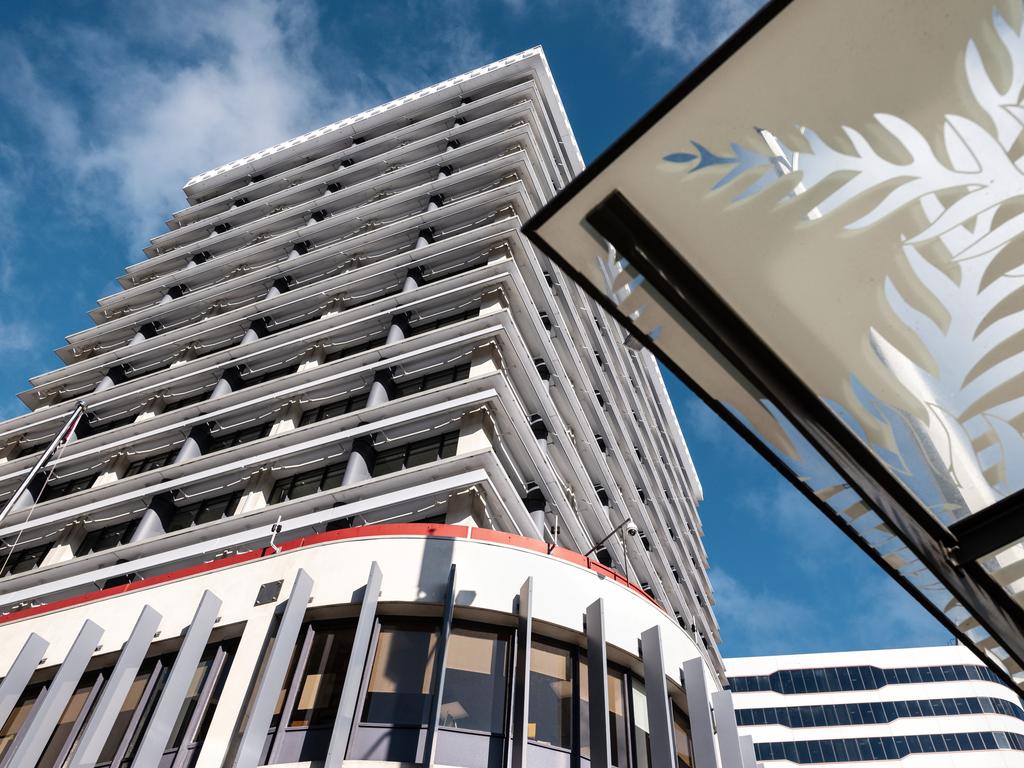
After outperforming since its last result, CBA’s “goldilocks” profit sent the stock prices of its three peers higher in a relief rally.
CBA was down slightly because its earnings were below consensus and, as might be expected, revenue fell 2 per cent, which on any read was soft.
Given the Australian economy is still floating on billions of dollars worth of government handouts and the pandemic is both locally and globally seemingly out of control, the relative optimism may be short-lived.
If you listen to Andrew Bassat at Seek he will tell you that without changes to businesses’ preparedness to take risks and the government making direct investment allowances instead of simple tax cuts, many of the jobs lost will never be recovered.
That tells you the banks face a bigger hit next year as the unemployment rate maybe exceeds 10 per cent and the 75 per cent of bank customers on loan deferrals who are still not making interest payments after six months of the crisis are in danger of becoming bad loans.
The plan is to get as many as possible back on to interest-only loans, which at present rates on an average loan of $350,000 works out at $200 a week — which for some may be manageable.
For the moment, CBA and its chief “Magic” Matt Comyn have delivered a perfect result for the times — not too hot, not too cold.
For its myriad stakeholders, that was the perfect recipe; strong enough to show the big bank market leader is in fine form, easily able to pay dividends at the maximum level allowed by the regulator, almost enough to satisfy investors as the only one of the big four trading on a multiple of its book value — and yet not so hot as to look greedy at a time when millions of Australians are wondering where the next real pay cheque will come from.
To be sure, the crisis has only just begun and Victoria has shown it is way too early to put away the props. Still, Magic Matt even allowed himself a little boast to declare CBA as “the best-capitalised bank in the world” — a big call.
After a few years of being kicked around town as something akin to pariahs, bank staff are feeling good about themselves again — with staff engagement back up to 81 per cent, the highest level in four years.
The bank’s 45,000 staff will be rewarded with $1000 worth of stock — and rightly so, given the way they have responded amid the storm.
Good enough too for the CBA board to exercise its discretion and award Comyn with a bigger bonus to reward his national leadership and in all boost his pay by 15 per cent to $3.9m.
Total cash pay increased from $2.9m to $3.4m, so the rent is safe. And, indeed, the entire executive leadership team received a combined 23 per cent increase in their short-term pay.
The bank’s annual report says “we can together”, and Comyn has the shop running well, all things considered, with an increased home loan market share of 27.1 per cent, a 25 per cent boost to deposits based, in part, on franchise strength so that 74 per cent of its book is covered by deposits, and a clear leadership in digital banking.
Jobs outlook fears
Seek boss Andrew Bassat says Australia has no hope of making up lost jobs from COVID-19 unless there are radical changes.
Bassat’s downbeat forecast was reflected in lower-than-expected guidance given to the market after his 2020 year results briefing on Wednesday.
While saying the numbers were only “illustrative”, they were enough to spook the market with revenue of $1.5bn — the lowest since 2018 — and earnings before interest, tax and depreciation and amortisation of $330m the lowest since 2014. What worries Bassat the most is that there are just too many jobs in Australia that won’t be there come December when the federal government stimulus is wound back.
His forecasts compare with market estimates of revenue totalling $1.7bn, up on the 2020 year, and earnings at $437m, compared to $414m in 2020.
The dismal outlook resulted in a drastic 8.4 per cent plunge fall in the company’s stock price to $19.63 a share.
Bassat had already told the market there would be no dividend and instead sees the past 12 months as showing Seek in its true colours — focused on long-term growth at the risk of short-term profits.
While job advertising volumes fell by as much as 65 per cent at the height of the pandemic, they are still down by 30 per cent.
“Job creation will be at the centre of any economic recovery and Seek is well placed to play a meaningful role,” Bassat said.
His Chinese operations have recovered from steep early falls to be down only slightly in the fourth quarter.
If mirrored elsewhere, this would suggest a quicker bounce-back than Bassat is tipping.
Overall, the group’s Australian revenues fell by 12 per cent and earnings by 15 per cent, while Asian revenues fell by 14 per cent and earnings by 26 per cent.
Mexico and Brazil both remain basket cases due to COVID-19.
In an interview, Bassat said: “We looked at cutting costs but we have opted for long-term growth by cutting contract margins, made no staff cuts and cut dividends to spend more on future growth.”
Australia, he said, “hasn’t yet seen the full extent of job cuts which may come”.
Bassat said business needed “more direct incentives from government” and “business needs to take more risks”.
Without these changes “we have no hope of making up the jobs lost”, he added.
“My hope is we can match skills needed with those on offer and draw up a map to put them together, but there is still too much friction in the system.”
Regulatory hurdles
The ACCC is still looking at Facebook’s $US400m ($562m) acquisition of GIPHY, the animated sticker application, which is planned to be integrated with Instagram to make it easier for people to express themselves better with their messages.
The regulator’s concern is more that it will lock in more data retrieval, raising hurdles for digital advertising competitors.
After waving through tens of acquisitions by the big online tech platforms, regulators all around the world are now taking a closer look, and this one is also being examined by the US Justice Department.








Amid the biggest economic crisis since the Great Depression, CBA has earned $7.3bn and a return of 10.3 per cent, underlining the strength of the big bank oligopoly.